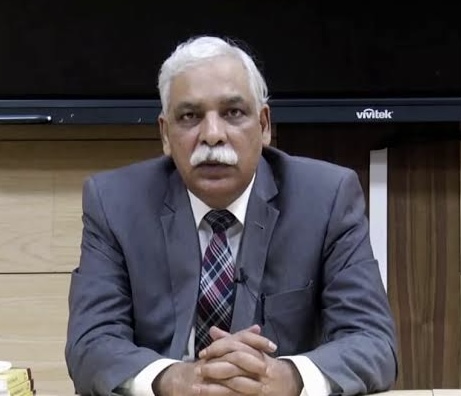Vidushi Vats
‘Instead of ‘Beti Padhao, Beti Bachao’, it is more important to adopt – ‘Beta padhao, Beti bachao‘. This patriarchy has its roots in culture. That needs to be changed. Only then, perhaps, we will be able to attain the goal of equality,” says Bombay High Court Chief Justice Devendra Kumar Upadhyaya.
He spoke at the project launch of ‘Nirdhar Samantecha’, an initiative to promote women’s and girls’ human rights and empowerment. The Nirdhar Samantecha project is under the leadership of the Swiss Agency for Development and Cooperation, with co-funding from the European Union. This initiative commenced in March 2023 and is scheduled to conclude in February 2026.
While addressing the issue of patriarchy and gender discrimination, he stated that gender discrimination starts right from birth and patriarchy has roots in culture. He said that the slogan “Beti Padhao, Beti Bachao” should be re-examined.
He said that boys have to be educated about patriarchy and gender discrimination, which is why “Beta Padhao, Beti Bachao” should be used instead.
During his speech, the judge highlighted the inadequate implementation of laws addressing gender-based violence. He pointed out that the Domestic Violence Act was in its early stages, and the Pre-Conception and Pre-Natal Diagnostic Techniques Act, 1994 (PCPNDT Act), aimed at preventing sex determination of unborn children, seemed underutilized.
The judge emphasized that effective administration of the PCPNDT Act is crucial, involving not only the courts but also the executive and civil society.
Delving into philosophical perspectives on the entrenched patriarchy, Justice Upadhyaya went on to say,
“I may be about 58 years old, but I think I am 2058 years old. I carry something which has gone on in the society where I am born, for 2000 years. So that baggage which we have carriedof the past 2000 years needs to be shunned first. This is the major reason because of why we tend to think that this kind of discrimination is not only permissible but also acceptable, and in some societies, it is preferred despite the enactment, despite the prohibition and penalties. This is the major reason which acts towards gender discrimination.”
He pointed out that as long as individuals remain in a state of denial regarding gender discrimination, they won’t recognize that even seemingly small actions can contribute to perpetuating it.
He urged for a shift in mindset to dismantle the deeply ingrained acceptance of gender discrimination. He emphasized that education, legal education clinics, and the interaction of law students with the broader society are vital components of this process of unlearning.
The Chief Justice also addressed the issue of gender-based violence and discrimination, specifically highlighting cases of domestic violence and child marriage that persist in the Marathwada region of Maharashtra.
“The basic reason for gender-based violence, discrimination and child marriage is that this society still is primarily an agrarian society which has its own peculiar social relations and cultural value system,” he said.
He concluded by appreciating the ambitious Nirdhar Samantecha project, which tackles such issues.

